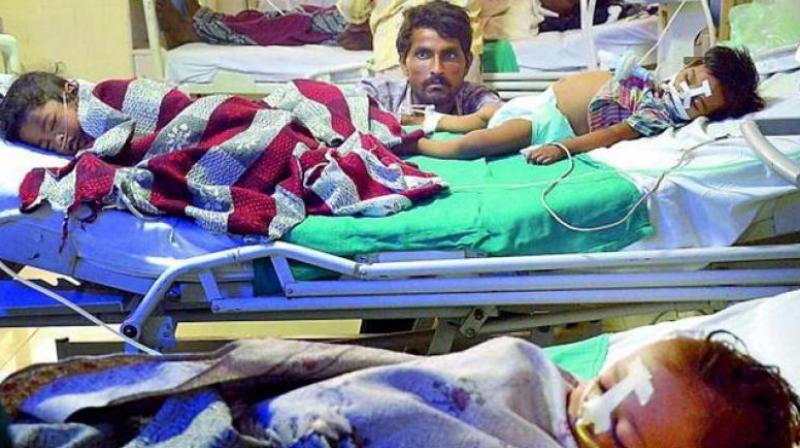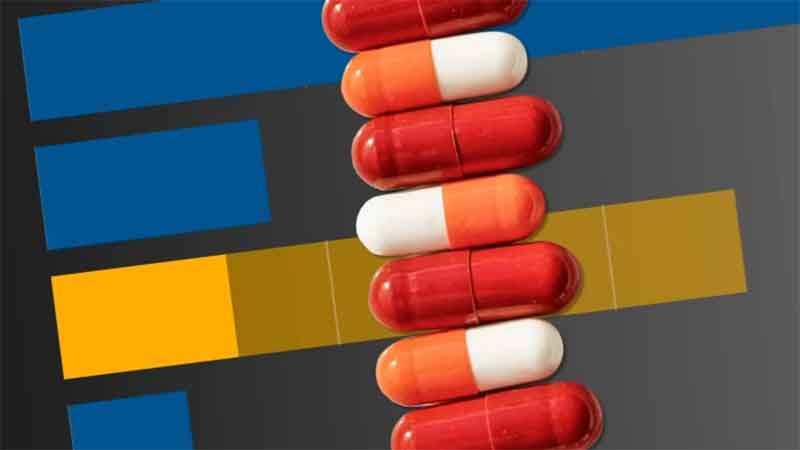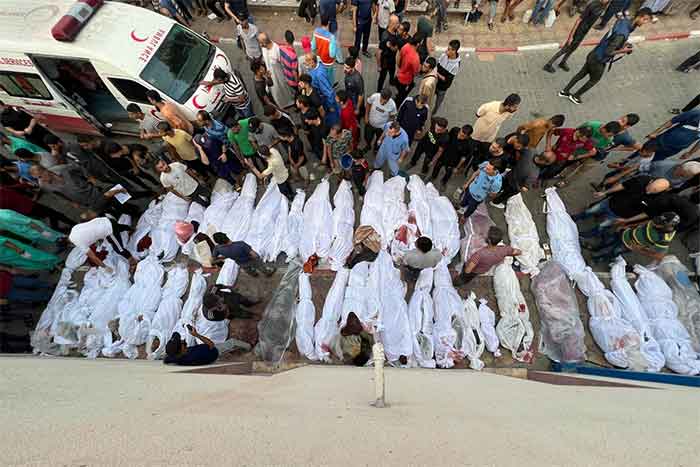
Co-Written by Jitamanyu Sahoo & Monis Ahmad
The repetition of the ghastly episode were 49 children died in Farrukhabad at Dr. Ram Manohar Lohia Hospital this September is nothing but a reflection of our health inequities that is deep rooted in our public healthcare system. In all 19 children died during delivery and 30 children at the hospital’s unit for newborns, reviving memories of Gorakhpur tragedy. This article reflects upon the idiosyncrasies and blemishes that is feeding our public healthcare and argues desperately for a need to interrogate our public healthcare system.
A Realistic Assessment Needed
The Bhore committee submitted its four volumes report in 1946 suggesting a short-term plan to be achieved over a period of 10 years and a long-term plan to be put in place over a period of 40 years with regard to the development of health services in the country. The recommendations proposed to develop a nationwide network of health facilities. The exhortation to cure the ailing health care system was euphoric.
The Bhore Committee report chalked out the role of the state in provision of health, laid emphasis on the need for health programme to occupy high priority in the allocation of available resources and also put forwarded an epidemiological approach to public health diagnosis and health planning. However, till date, even the objectives of the short term plan are yet to be attained.
The present disarray in the health services system of the country makes the burden on our public healthcare system appear greater and deeper today. The National Health Policy 2017 is supposedly a thrust given by the government to strengthen our healthcare system. The few upshots is that the policy pledges to reduce infant mortality rate to 28 by 2019, reduce under five mortality to 23 by 2025, it intends to achieve the global 2020 HIV target and also determined to increase life expectancy at birth from 67.5 to 70 by 2025.
However, the inclusion of a “progressively incremental assurance based approach” for realizing health care in the 2017 policy as a right in the future have justified that making health as an entitlement is a farfetched dream. Unfortunately, the failure of the health policy paradigm in the country even after introduction of guided reforms resulting in nothing but bringing more failure needs to be assessed and interrogated.
The Burden of our Public Health Care
India has taken millions of people out of poverty. However, quality and standard health care is only accessible to wealthy families in our country. The National Health Policy 2017 proposed to increase the public spending on health care from a dismal 1 percent to a meagre 2.5percent of GDP by 2020 which is itself well below the world average of 5.99 percent. However the same has not been reflected in the budget of financial year 2016-17 for the health care sector.
Public resources invested on health care are abysmally low and inequitably distributed across and within states. According to the Economic Survey of India 2017 India spends only 4 percent of its GDP on health care less than half of that in Brazil and South Africa and out of pocket payments account for the majority of it. Moreover according to the OECD Health Statistics 2014 India had only 0.7 physicians per 1000 population well below the OECD average of 3.2 and 1.1 nurse per 1000 population much lower than the average of 8.8 in OECD countries.
The small budget allocated for health care in India has significantly affected the ingress to public health care for poor people and people living in rural areas. Due to lack of available health care, the Indian life expectancy hovers at about 68 years as compared to 76 years for China and 79 for United States of America. These statistics mirrors the betrayal of State in allowing us to enjoy a healthy lifestyle.
The scarcity and the meagreness of our public healthcare have led poor Indians to rely in the services of private doctors. This had resulted in an escalation in the increase of out of pocket payments by the poor people driving many of them to acute poverty. There is considerable ideological debate around public versus private health care services however the only way to achieve universal and equitable access to health care is strengthening the reliance on public health services. We need to understand that there is tight knit relationship between health and economic development of a country and it is clear that the lack of investment in healthcare has affected the development of our economy.
Need for Health Referendum
There is an ever increasing public health challenges for us to surmount. These challenges include rise of people being affected by communicable diseases and non-communicable diseases on one hand and lack of effective and robust public health care system to mitigate on the other in the present. In Thailand there is strong movement to build healthy public policy through intersectoral collaboration and community participation in health reforms via National Health Assembly. A tradition of dialogue and rising level of consensus have evolved in driving health gain in Thailand. There needs to be such resistance to attenuate the challenges that beholds our public healthcare system through participatory citizenship.
However, today, the public health discourse in India is mostly guided by the market forces indebted in profit making motives. The presence of multi-national companies and pharmaceutical companies are felt as they are key stakeholders in designing our public health policy and programmes. The presence and participation of public in public health discourse today is much needed than ever before. This will empower the public to utilize their skills, affirm their rights and take up responsibility against our failing public health care system.
After, seven decades of our existence, there is pervasive feeling that India’s health care is in crisis. The presence of inequality and the absence of accountability have together impeded action to guard our crumbling public healthcare system. It is about time we are done experimenting with our healthcare system and posit the quest for a more equal health care system.
Jitamanyu Sahoo and Monis Ahmad are currently working as Junior Legal and Research Consultant with the National Human Rights Commission. Views are personal.

















































